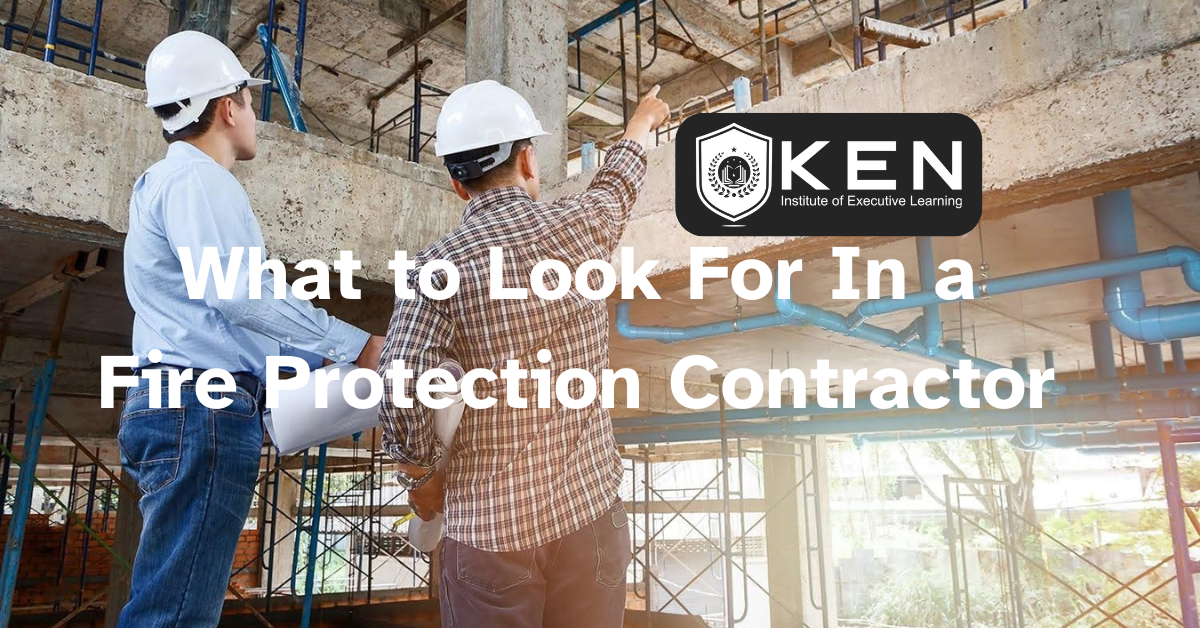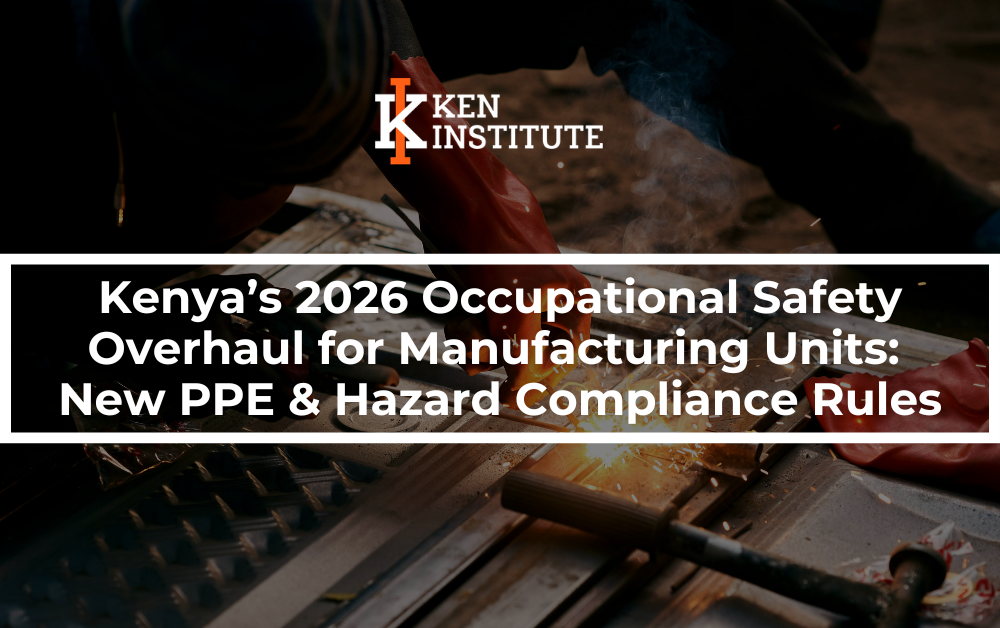Being a responsible property owner means preparing for the worst-case scenario—preventing fire damage. If you own a commercial building, it’s important that you should be in contact with an experienced and professional “Fire Protection Contractor” who will be able to help you protect the life of your people as well as your assets from fire damage.
Selecting the right Fire Protection Contractor is crucial to ensure the safety of your property and its occupants.
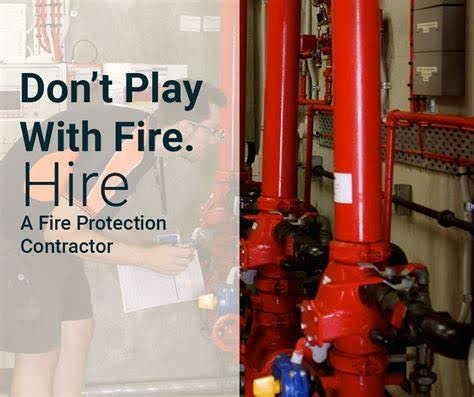
Here are several factors to consider when looking for the top quality fire protection contractor:
-
Licensing and Certification:
Ensure that the contractor holds the necessary licenses and certifications required by local and state authorities.
Make sure that the fire protection company you hire knows what they’re doing. When a fire protection company is licensed, this means that the state found them qualified to provide fire protection services.
If you are interviewing a fire protection company that’s reluctant to share their licensing information, keep looking.
If a fire occurs, you’ll want to be sure that the products and systems you paid for will work properly. You’ll only get this peace of mind when you work with a licensed fire protection contractor.
Local Requirements: Different jurisdictions may have specific licensing requirements for fire protection contractors. Ensure the contractor is compliant with local laws and regulations.
NFPA and ICC Certifications: Look for certifications from reputable organizations such as the National Fire Protection Association (NFPA) or the International Code Council (ICC).

These certifications demonstrate a commitment to industry standards and best practices.
-
Insurance Coverage:
Ensure that the contractor has adequate insurance coverage, including liability insurance, to protect you in case of accidents or damages during the project.
With any Fire Protection Contractor, you’ll want to make sure they protect their workers through insurance. Without insurance, you’ll become liable for any injuries sustained on the job. This means that you will be responsible for paying medical expenses.
To avoid this legal headache, make sure that the fire protection company properly insures their employees.
Verification of Insurance: Request proof of insurance and verify that it covers liability, property damage, and workers’ compensation. This protects you from potential legal and financial liabilities.
Policy Limits: Ensure that the insurance coverage limits are adequate for the scale and nature of your project.
-
Experience and Expertise:
Check the contractor’s experience in the industry, including the number of years they have been in business.
Verify their expertise in various fire protection systems, such as fire sprinklers, alarms, extinguishers, and suppression systems.
Project Portfolio: Review the contractor’s project portfolio to gauge their experience with projects similar to yours. This can include residential, commercial, industrial, or specialized facilities.
Technical Competence: Assess the contractor’s knowledge of various fire protection systems and technologies. An experienced contractor should be well-versed in the latest industry advancements.
-
References and Reputation:
Ask for references from past clients or check online reviews to gauge the contractor’s reputation.
Look for testimonials or case studies that highlight successful projects they have completed.
Ask for Specific Projects: When asking for references, request information about specific projects the contractor has completed that are similar in scope and complexity to yours. It’s not uncommon for fire protection companies to specialize in a certain range of services. Make sure your fire protection contractors are experienced in the fire protection services you need.
Online Reviews: Check online review platforms and the Better Business Bureau for feedback from previous clients. Pay attention to any recurring themes or issues.
References: Make sure that their references are relevant to the type of work you want done. For example, if you are looking for a fire alarm contractor, you’ll want a company that has relevant experience. When the contractor hands you their references make sure that they are relevant to your needs and that they are fairly recent. Sometimes when companies fall under new management, the quality of their services suffer. References from recent customers will help you form an accurate picture of how their business is run.
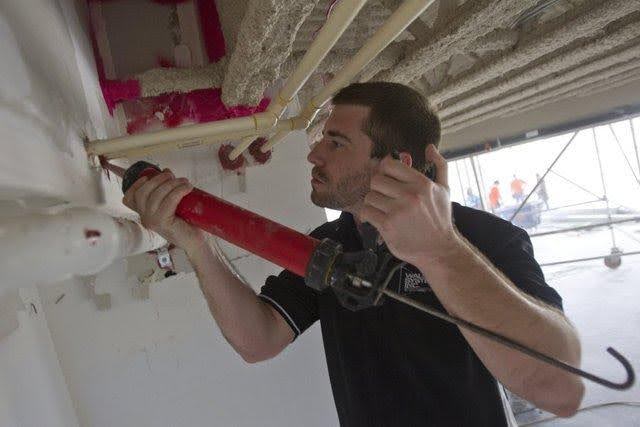
-
Compliance with Codes and Standards:
Verify that the Fire Protection Contractor is knowledgeable about and complies with local, state, and national fire codes and standards.
Knowledge of fire safety regulations: To keep a building fire code compliant, it’s important that you hire a company that is aware of any new revisions to fire safety regulations. Before hiring a fire protection contractor, be sure to ask about their knowledge of standards set by the National Fire Protection Association (NFPA), as well as state and local codes. You will also need a fire protection contractor who will be able to keep your building compliant with fire safety standards set by your insurance.
Confirm their understanding of specific industry regulations and standards relevant to your property type.
Code Knowledge: Confirm that the Fire Protection Contractor is up-to-date with the latest fire codes and standards applicable to your location and industry.
Adaptability: A reliable contractor should be able to adapt to changes in regulations and ensure that your system remains compliant over time.
-
Range of Services:
Evaluate the contractor’s capabilities and the range of services they offer. This includes design, installation, maintenance, and inspection of fire protection systems.
Consider whether they provide 24/7 emergency services for repairs and troubleshooting.
Turnkey Solutions: Consider a contractor that offers end-to-end services, from system design and installation to ongoing maintenance and inspections.
Specialized Services: If your facility has unique requirements, ensure the contractor has experience with specialized systems, such as clean agent suppression systems or high-rise fire protection.
Full Range of Services: If you need a full range of services, it’s often best to work with one company. It’s more convenient to have all your fire safety needs covered by one contractor, as opposed to trying to coordinate multiple third parties. Keep your business simple by relying on a contractor experienced in a wide variety of services who also offers a range of fire safety products.
-
Training and Qualifications of Staff:
Inquire about the training and qualifications of the contractor’s staff, including technicians and engineers.
Ensure that the team stays updated with the latest advancements in fire protection technology and techniques.
Certifications of Technicians: Ensure that technicians are certified for the specific systems they work on. This could include certifications from equipment manufacturers or industry organizations.
Continuing Education: Inquire about the Fire Protection Contractor’s commitment to ongoing training and professional development for their staff.
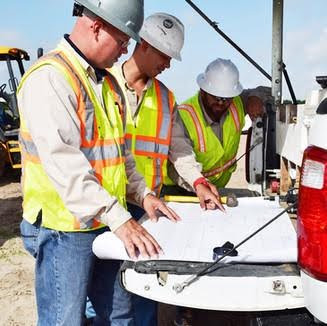
- Cost and Transparency
Obtain detailed cost estimates for the entire project, including equipment, labor, and any additional charges.
Detailed Estimates: Request a detailed breakdown of costs, including equipment, labor, and any potential additional expenses.
Payment Terms: Clarify payment terms and milestones throughout the project. Beware of contractors who request significant upfront payments.
Look for transparency in the contractor’s pricing structure and billing practices.
-
Communication and Responsiveness:
Assess the contractor’s communication skills and responsiveness. A reliable contractor should be accessible and able to address your concerns promptly. Clarify the communication channels and the frequency of project updates.
Project Manager: Identify a dedicated project manager or point of contact. Clear communication channels are essential for addressing concerns and ensuring project progress.
Emergency Response: Discuss the contractor’s emergency response procedures and availability in case of urgent issues.
-
Warranty and Maintenance Programs:
Inquire about the warranties provided for equipment and installations. A reputable contractor should stand behind their work.
Ask about available maintenance programs to ensure the ongoing reliability and compliance of the fire protection systems.
By thoroughly evaluating these factors, you can make an informed decision when selecting a fire protection contractor for your property.
Warranty Duration: Understand the duration and coverage of equipment warranties. Some contractors may offer extended warranties for added peace of mind.
Maintenance Plans: Inquire about available maintenance plans and their scope. Regular maintenance is critical for system reliability and compliance.
“Enroll in Ken Institute’s dynamic fire safety programs, guided by seasoned instructors, empowering you with the skills needed to confidently manage any fire-related crisis in the workplace.”
By carefully considering these aspects, you can select a fire protection contractor that aligns with your specific needs and ensures the safety and compliance of your property.
Become a leader in your field! Join Ken Institute and unlock a world of online courses in Occupational Health and Safety, Fire Safety, Environment and Sustainability, and Mechanical Engineering.
Get in touch with us at: info@keninstitute.com
Visit our website: www.keneducation.in
Call us on +917569034271
Let’s connect together on: Facebook, YouTube, LinkedIn, and Instagram.
